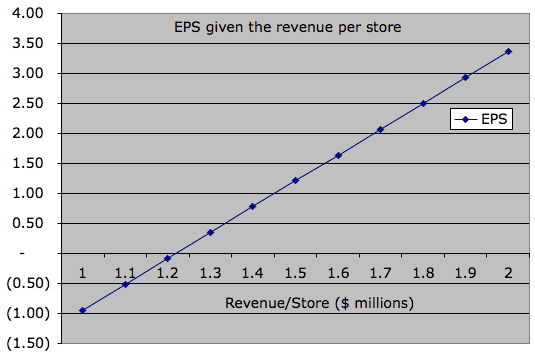A Ship in the Harbor is Safe Investment Ideas
Post on: 12 Июнь, 2015 No Comment

09/03/2009
CCA Industries (CAW)
Someone in my office forwarded a link to a video of Bruce Greenwald discussing value investing which was summarized with three points:
- Value Investing consists of a basic investing process starting by identifying potential stocks among those are ugly, cheap, obscure, small capitalization, and out of favor.
- What distinguishes value investing is the approach to valuating stocks, which starting with balance sheet. Most people do not, instead they focus on income statement.
- Value investing has been proved beyond doubt to be a better approach to investing. The reason it succeeds is that most people go where the dreams are. Value investors identify where the market is crazy about and looking for opportunities that most investors are turned off about.
A few days earlier I stumbled across CCA Industries (CAW), an ugly, cheap, small cap, and out-of-favor company, and my investment thesis is pretty much based on their balance sheet. This doesn’t require much analysis, you can determine if you like it in a few hours, and the biggest position you could possibly take is less than $3 million.
Flash Player 9 or higher is required to view the chart

Click here to download Flash Player now
CAW licenses or owns some brand names for consumer goods generally sold in drug stores and supermarkets, including products for hair removal, nail care, shampoo, and sunscreen. They don’t manufacture, they just warehouse inventory and manage brand names, distribution, and relationships with buyers. RoIC has bounced around the 50% range as capital requirements are minimal, barely exceeding working capital. Some of their brands look weak, but keep in mind that if they’re weak today, they’ve been weak for the last 10 years. Nothing’s changed.
With earnings and FCF over the past 8 years averaging $4.2 million, the business might appear cheap at a market cap of $28 million. But when we look at the balance sheet, we realize that there is $17 million of cash and investments, bringing the EV down to $10.6 million. Of course this doesn’t take into account market value appreciation of assets since the most recent quarter ended on May 31, which the model is extremely sensitive to. For example, a 10% increase in the cash and investments balance pushes the EV down 17% (to $8.8 million). There is no bankruptcy risk with $17 million of cash and equivalents, a completely unused line of credit for $20 million, and positive LTM FCF of $3 million.
I’m guessing there are three reasons why this stock is so cheap.
- The company is tiny and thinly traded
- The brand names are weak, things you wouldn’t be surprised to see in a dollar store
- Walmart canceled orders for a specific line (of toothpaste) which should reduce revenue by about $6 million (10%)
Even with some pessimistic assumptions, the stock is undervalued. Starting with depressed LTM revenue and subtracting the Walmart hit, we have a sustainable top line of $50 million. Assuming no growth forever and margins heavily weighted towards recent poor performance, we get an EBIT of $3.7 million. Compare this to peak 2007 EBIT of $9.3 million. These assumptions put CAW trading at 4.4x earnings after tax.
Further assuming that CAW maintains 2008 dividend payouts of $2.9 million (a 10% yield), I modeled a $19.3 million cash and investments balance in 2013. That balance plus the 2013 dividend plus 10x after tax EBIT yields a 2013 share price of $6.56. Discounting back to today at 15% per year gives us a minimum share price of $4.51, compared to the market value of $3.95.
There really isn’t much more to know. Management doesn’t host conference calls, there’s no sell-side coverage (although some old reports are posted on the CCA website). Seth Hamot. an activist investor from Roark Rearden & Hamot Capital Management, defended common shareholders in a dispute with management over Class A shares in 2007. Since then, he’s been a member of the board. If you need to contact him, it might be good to know that Roark and Rearden are fictional Ayn Rand characters.
Disclosure: I own shares of this company. It’s thinly traded and illiquid, so if you decide to buy shares, make sure you’re careful and you know what you’re doing!














